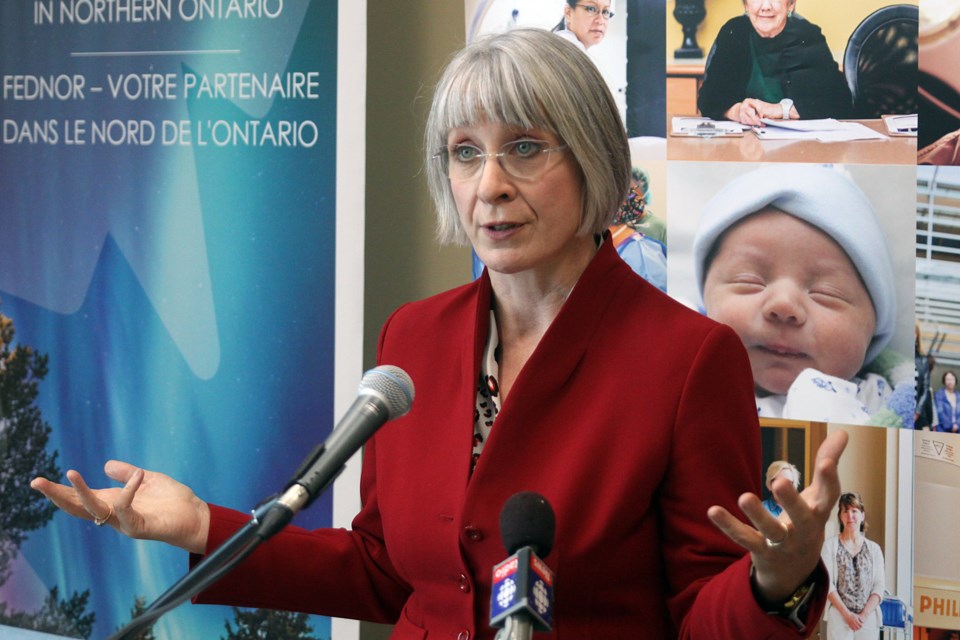THUNDER BAY – The latest federal budget will deliver real-world changes for local residents, particularly those most hard hit by the pandemic, says Thunder Bay-Superior North MP Patty Hajdu.
The 2021 budget, presented earlier in the evening by Finance Minister Chrystia Freeland, promises billions on childcare, Indigenous communities, transit, and to extend pandemic supports.
It also pledges to "work to make FedNor a standalone regional development agency and strengthen the economic development of Northern Ontario," Hajdu noted, the lone mention of the region in the document.
The minority Liberals will need support from at lest one other party to pass the budget.
While it doesn’t include any movement on a universal basic income (UBI) as rumoured, Hajdu pointed to other poverty-fighting measures in the budget, such as augmenting the Canada Workers Benefit and making childcare more affordable.
“We’ve been committed to reducing the gap and reducing poverty since we were elected in 2015,” she said.
Freeland, the first woman ever to present a budget in the Canadian House of Commons, said the experience of jurisdictions including Quebec showed a $30 billion investment in childcare over the next five years would pay for itself.
She acknowledged decades of unmet Liberal promises around a national childcare program.
“This time, we’re going to do it,” she said. “Early learning and childcare has long been a feminist issue. COVID has shown us it’s an urgent economic issue, too.”
The plan intends to see universal access to childcare spots at a rate of $10 per day five years from now, she said.
The budget also introduces a $15 federal minimum wage, which will impact only a minority of workers, extends sickness benefits under EI from 15 to 26 weeks, and expands the Canada Workers Benefit by $8.9 billion over six years.
It also includes around $18 billion for Indigenous communities, including for infrastructure, health, and the ongoing pandemic response.
The document shows a federal deficit of $354.2 billion over the past year, with a deficit of $154.7 billion forecast next year. It also sketches a plan to reduce deficits to $30.7 billion in 2025-26
Last year’s deficit was somewhat lower than the $381.6 billion predicted in the government’s fall economic statement.
The budget also introduces a one per cent tax on vacant housing owned by "non-resident non-Canadians," and a new tax on luxury goods including cars and aircraft worth over $100,000, and boats worth over $250,000.
Hajdu said a $1 billion investment to promote tourism and community events, over three years, wouldn’t promote travel until public health authorities deemed it safe.
“Until we are all in a stable situation, we know that tourism will continue to struggle,” she said. “This is really a commitment to the industry.”
The minority Liberal government will need the support of at least one other party to pass the budget.
In a statement issued Monday, Ontario's provincial government expressed disappointment there were no increases to the Canada Health Transfer (CHT).
